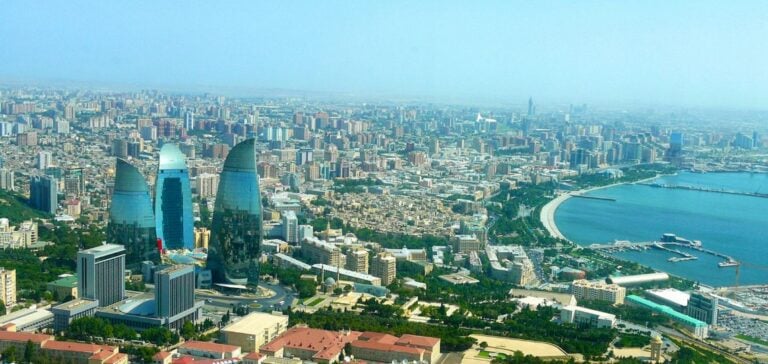Azerbaijan, designated to chair the 29th United Nations Climate Conference (COP29), is promoting natural gas as a solution for the energy transition. Despite calls from the UN to accelerate the move away from fossil fuels, Minister Moukhtar Babaïev said his country would continue to increase its gas production volumes while developing renewable energy projects. This strategy is designed to meet the European Union’s demand for energy security.
Azerbaijan’s Energy Strategy
In 2023, Azerbaijan’s gas exports increased significantly. According to Moukhtar Babaïev, this increase is justified by strong European demand. Indeed, Azeri gas is one of the alternatives to Russian gas for European Union countries. Azerbaijan, the second oil and gas power to chair the climate negotiations after the United Arab Emirates, is striving to maintain a balance between exploiting its fossil resources and investing in renewable energies.
President Ilham Aliev recently described his country’s gas reserves as a “gift from the gods”. This view reflects the position of many developing countries, who see their natural resources as an essential economic opportunity.
Geopolitical context and climate issues
COP29 organizers have announced that President Aliev will call for a global ceasefire during the conference. This initiative aims to highlight the link between armed conflict and greenhouse gas emissions. Ialtchine Rafiev, chief negotiator at COP29, pointed out that military activities are among the main sources of emissions, having a direct impact on the climate agenda.
Another major issue in the negotiations will be financial assistance from rich countries to developing countries to enable them to invest in clean energy. Discussions in Bonn have already highlighted the need to increase financial contributions, beyond the $100 billion per year initially planned.
Innovative Financing Initiatives
To meet growing financial needs, the COP29 Presidency is proposing “innovative” sources of funding. This could include a contribution from fossil fuel producers to finance climate action in the most vulnerable countries. This proposal, still in its early stages, is currently being discussed with various countries and international institutions.
Other proposed solutions include taxes on polluting industries such as aviation and shipping, or a global tax on billionaires, as suggested by Brazil. These ideas aim to diversify funding sources to better support developing countries in the face of climate challenges.
Future prospects and challenges
Azerbaijan’s decision to host COP29 came against a complex geopolitical backdrop, marked by tensions with Russia and peace talks with Armenia. These issues underline the interconnection between international policy and climate action.
Azerbaijan will have to navigate these challenges while striving to advance negotiations on climate aid and financing initiatives. The success of COP29 will largely depend on the ability to reach a consensus on these critical issues.





















